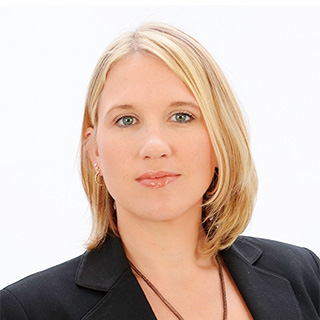
Graduate School of
Asia Pacific Studies (Doctoral)
DOCTORAL PROGRAM OVERVIEW
The developing world is in great need of internationally-minded individuals possessing specialized knowledge and skills. Therefore, it is becoming increasingly common for international aid organizations to enlist the professional guidance of doctoral graduates. The doctoral program aims to produce independent individuals capable of conducting high-level research. This involves gaining expertise in theoretical and empirical approaches for investigation, acquiring in-depth knowledge of the Asia Pacific region, collecting and analyzing data, and drawing practical solutions for complicated issues in a comprehensive and integrative manner. Alumni of this program become distinguished leaders and take on prominent roles in advanced institutions for research and higher education around the world.
Asia Pacific Studies
| Degree | Doctor of Philosophy in Asia Pacific Studies |
|---|---|
| Enrollment Semesters | April, September |
| Program Duration | 3 years* |
| Yearly Intake | 10 students |
*Accelerated completion in 2 years may be possible upon further examination after enrollment. The total tuition for the program will not change even if you complete your degree before the standard period of completion
STUDENT DEMOGRAPHICS
*Current as of the 2022 academic year.
-
24 Students
-
109 Alumni
-
15 Countries and Regions
Represented by GSAD
Students -
35 Average Age
FACULTY AND THEIR RESEARCH FIELDS
-
BUI Thanh Huong
Human Geography, Social Psychology, Tourism Management and Development, Sustainability and Resilience
-
CHEN Ching-Chang
area studies (East Asia); comparative politics; conflict resolution; international relations theory; security studies (critical); sociology of knowledge
-
GHOTBI Nader
Public Health and Epidemiology, Health Economics, Environmental Economics, Ethics and Philosophy, Bioethics
-
HAN Ji
Urban Ecology, Material Metabolism, Low-carbon City/Transport, Livable City, Circular Economy, Ecosystem Services, GIS and Remote Sensing
-
IGUCHI Yufu
Gender Studies, Cultural Studies, Southeast Asian Studies (Malaysian Studies), Intellectual History
-
JONES Thomas Edward
Environmental Policy, Nature-Based Tourism, Protected Areas, Regional Development
-
KASEDA Yoshinori
Politics, International Relations
-
KIKKAWA Takuro
Politics, Area Studies, International Relations
-
KIM Sangho
Theoretical Economics, Econometrics, Applied Economics, Economic Policy
-
KIMURA Rikio
Social Welfare and Social Work Studies, Area Studies, Sociology of Education, Education
-
LI Yan
Environmental Policy, City Planning, Regional Planning, Traffic Engineering, Social System Engineering
-
MAHICHI Faezeh
Environmental Education and Awareness, Industrial Ecology and Sustainable Environment, Environmental Microbiology, Air/Soil/Water Pollution, Global Warming, Coral Reef Ecosystem Health, Organic Agriculture, Chemical Disaster Management
-
MANTELLO Peter A.
Artificial Intelligence, Chatbots, Human-Machine Relations, Emotional AI, Malicious AI, Surveillance Systems, Predictive Policing, Videogame Theory, Conflict Media
-
MEIRMANOV Serik
General Life Science, Social Psychology, Human Genetics, Human Pathology, Public Hygiene Studies/Health Science
-
NATSUDA Kaoru
International Development Studies, International Political Economy, Economic Policy, Industrial Development, Rural and Community Development, Automotive Industry, Apparel Industry
-
NISHIZAKI Yoshinori
Comparative politics, Southeast Asia
-
OHASHI Hiroaki
Urban and Regional Planning, Spatial Planning and Policy, Comprehensive Planning, Urban (Re)development, Real Estate Development, Urban Design, Development and Environment, International Cooperation
-
OTSUKA Kozo
Applied Economics
-
PISHVA Davar
Environmentally Sound Technologies (ESTs), Simulation and Modeling (SaM), Decision Science (DS)
-
ROTHMAN Steven B.
International Relations Theory, International Policy Making, International Environmental Policy, Subject Pedagogy
-
SATO Yoichiro
Politics, International Relations
-
SHIMOMURA Ken-Ichi
Economic Theory, Industrial Organization
-
SUZUKI Yasushi
Fiscal Studies/Finance Theory, Theoretical Economics, Institutional Economics, Political Economy
Doctoral supervision available only for students that have completed their master's thesis under the professor's supervision
-
TODOROKI Hiroshi
Geography, Area Studies, Human Geography
-
VAFADARI M. Kazem
Cultural Heritage Management, Ecotourism, Agriculture Heritage Tourism, Community Based Tourism and Rural Tourism
-
YAMAGATA Tatsufumi
Development Economics, Textile Industry, Bangladeshi Economy, Health and Development, Disability and Development
-
YAMASHITA Hiromi
Environmental Sociology, Environmental Communication, Public Participation in Decision Making, Coastal Wetlands Restoration Projects, Ramsar Convention and Local Implementation
-
YOSHIDA Kaori
Media Studies (Representation Politics: Gender, Ethnicity, Nation), Cultural Studies, Popular Culture, Comparative Culture Studies
-
YOSHIMATSU Hidetaka
International Relations, International Political Economy, Regional Studies (East Asia)
-
YOTSUMOTO Yukio
Sociology, Tourism
-
LE Hoang Anh Thu
Cultural Anthropology, Folklore Studies
-
MATSUO Yuji
Energy System Analysis, Energy Policy Analysis, Climate Change Countermeasures, Sustainable Society
-
SUN Yiyang
Information Network, Web Informatics, Service Informatics, Management, Commerce
-
VYAS Utpal
Area Studies (East Asia), Area Studies (European Union), Politics, International Relations, Political Economy
-
YAMAURA Koichi
Food and Agricultural Economics, Environmental Economics
-
YOUN Seung Ho
Tourism Studies, Social Psychology
COURSE STRUCTURE AND CONTENT
Completion of the doctoral program requires fulfillment of doctoral coursework in addition to submission and approval of a final dissertation. The dissertation should integrate the results of in-depth investigation into Asia Pacific issues and incorporate individual findings that outline strategic, policy-oriented, and practical solutions to issues arising from current developments in the region. APU provides support for doctoral students conducting field research for their dissertations. Research supervision can be provided in areas such as diversity and integration, environment and development, international political economy, and tourism development.
PH.D. CURRICULUM STRUCTURE
| Lecture Subjects | |
| 1st Year | Seminars, Research Paper (arranged by supervisor) |
| 2nd Year | Seminars, Presentations, Tutorials, Research Paper (arranged by supervisor) |
| 3rd Year | Seminars, Tutorials (arranged by supervisor) |

Dr. Cindy Lyn Banyai (USA, Graduated in 2010)
US Congressional Candidate, Founder and Principal of Banyai Evaluation & Consulting, LLC, and Adjunct Faculty, Department of Political Science and Public Administration at Florida Gulf Coast University, USA
“Getting my doctorate at APU allowed me to conduct field work both within Japan and throughout Southeast Asia. This research that culminated in my dissertation also lead to additional peer-reviewed publications and my own book. I was fortunate to also work with my supervisor on JICA international development projects, which gave me practical skills in training, evaluation, and program design needed for my career. This experience helped me learn about emergent leadership and gain the global perspective necessary to start my own evaluation and organization development consultancy and contribute to the global community as the representative to the UN for the International Association for Community Development.”